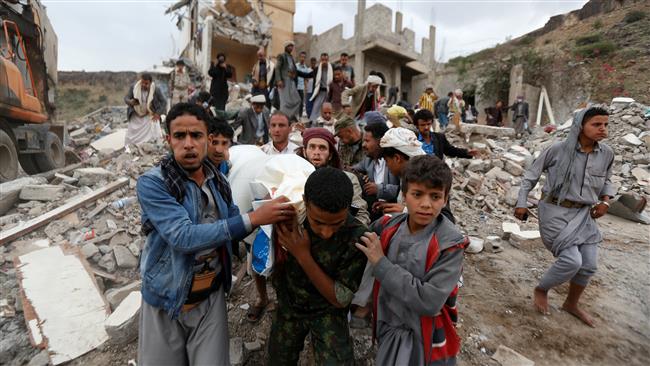
RNA - Repeated bombings have crippled bridges, hospitals and factories. Many doctors and civil servants have gone unpaid for more than a year. Malnutrition and poor sanitation have made the Middle Eastern country vulnerable to diseases that most of the world has confined to the history books.
Worse still, damage from the war has turned Yemen into a fertile environment for cholera, a bacterial infection spread by water contaminated with feces. As garbage has piled up and sewage systems have failed, more Yemenis are relying on easily polluted wells for drinking water. This deliberate carnage and starvation of civilians “amounts to a war crime and should be prosecuted,” that’s according to an independent UN human rights expert.
In a new report, the Special Rapporteur on the Right to Food Hilal Elver has examined the right to food in conflict situations and found a grim picture depicting the most severe humanitarian crisis since the UN was established. She says, “Contrary to popular belief, causalities resulting directly from combat usually make up only a small proportion of deaths in conflict zones, with most individuals in fact perishing from hunger and disease.
As it stands, the Saudi-led war on Yemen has proliferated around the region and with it has come a rise in food insecurity. The proportion of undernourished people living in Yemen and protracted crisis is almost three times higher than that in other developing countries. As a consequence, millions of people are facing famine and starvation in the conflict-stricken country. Many more currently require emergency food assistance.
Since the human right to food is a universal one, Saudi Arabia, the United States and other parties to the conflict must act and avoid using food as a weapon of war. The famine has occurred from their deliberate actions. They are using food as a weapon of war, which is an international crime and there is international responsibility to that.
The United Nations and the international community should make it clear that this is a war crime or a crime against humanity, otherwise they will give a certain permission to the world’s worst humanitarian crisis. Approximately 60 percent of the population are food insecure while 7 million are at risk of famine and acute food insecurity, a situation that is expected to worsen if the conflict continues.
The Saudi-led coalition has played a significant and deliberate role in the decreased access to food, including a US-backed, Saudi-imposed aerial and naval blockade on a country which previously imported 90 percent of its food. Airstrikes carried out by the coalition have also targeted the country’s agricultural sector including farms, further limiting access to food, while sieges in numerous cities have prevented staple data-x-items from reaching civilians.
Yemen is a clear situation where deliberate famine constitutes a crime against humanity in which both the United States and Saudi Arabia are responsible. Tragic enough, there is still widespread impunity for the warmongers at the UN, and the International Criminal Court (ICC) is yet to prosecute individuals responsible for this crisis. Though UN Secretary-General Antonio Guterres has included the Saudi-led coalition in his annual shame list for violations against children, no further action against the regime has been taken in order to end the unnecessary conflict.
This includes the creation of legal mandates to prevent famine and protect people’s right to food, the development of international legal standards to reinforce the norm that deliberate starvation is a war crime or a crime against humanity, and the referral of the most serious cases to the ICC for investigation and potential prosecution.
The international civil society can no longer afford to allow the Saudis and the Americans to hide behind a curtain of natural disasters and state sovereignty to use hunger as a genocidal weapon in Yemen. The UN should open a direct line of communication with Yemen’s resistance leaders, legitimizing their rightful position in the conflict instead of issuing biased statements in support of the Saudi aggressors.
This could help address the humanitarian crisis, end the US-Saudi aerial campaign, and lift their naval blockade, ending the immediate humanitarian crisis. If foreign governments and the UN act soon to reduce Yemen’s suffering and accept that the illegal war needs a local solution, then Yemen can still recover and even add a measure of stability to a volatile region.
847/940